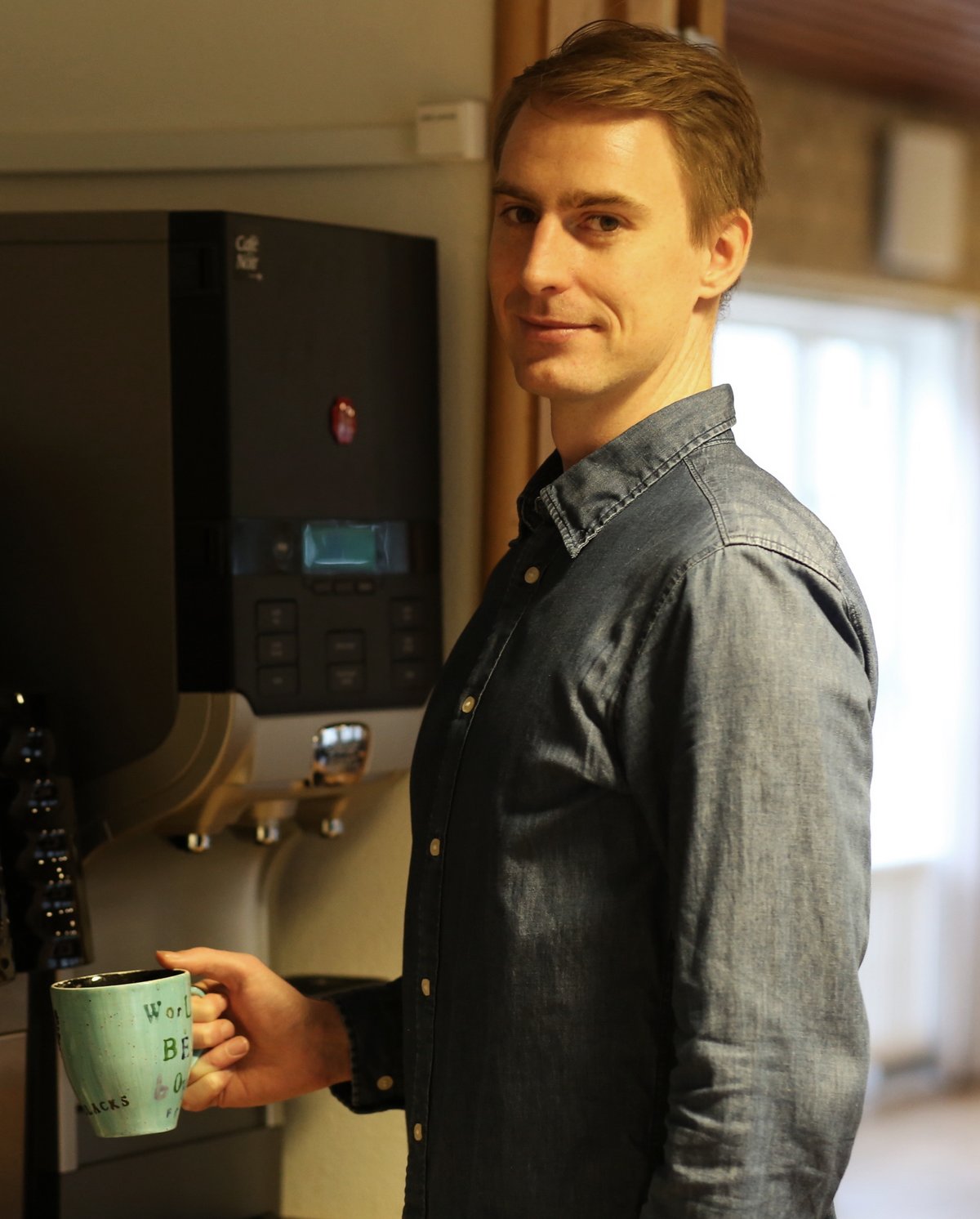Thomas Ryan
MSc Economics and Business Administration from Aarhus University, PhD student at CFA since 2015
Supervisor: Jesper Wiborg Schneider. Co-supervisor: Carter Walter Bloch.
What is the topic of your project?
In my PhD project, I conduct a quantitative analysis of collaboration between university researchers and businesses. I focus on mapping the different types of collaboration. I am especially interested in how collaboration with businesses affects research production. We do not know whether researchers can help businesses solve their problems and simultaneously produce knowledge that can be published in academic journals. It seems obvious that it is a form of exchange, i.e., researchers get money from a businesses so that they can continue research on topics that interest them and businesses acquire some knowledge that they can keep to themselves. My project examines whether that is actually the case.
The association between universities and business interests has been a prominent topic on the research-policy agenda for many years. Some see researchers’ contributions to business innovation is a natural extension of the universities’ obligation of public utility. Others see collaboration with businesses as corruption of research and an inappropriate mixture of capitalist and academic interest. My project serves as input to the political system when it has to make decisions about how to prioritize collaboration between businesses and researchers because it says something about the consequences for research of these alliances.
How did you end up doing a PhD at CFA?
Between my Bachelor and my Master’s, I travelled around the US for five weeks. During my trip, I realized that the time as easy-going student had to end. In the future, I wanted to apply my knowledge in the real world. I started looking for jobs in different places where they conducted quantitative analyses and where I could use my statistics skills. This led me to a job as student assistant at CFA. During those two years, I probably spent as much time in my student assistant job as I did being a student. I was constantly given really interesting tasks. When I completed my Master’s, I applied for a position as research assistant with a view to becoming a PhD student later.
What is it like doing a PhD at CFA?
I appreciate the open-door culture. You are always welcome to stop by a colleague to discuss an academic topic or just to chat. That way, you get to know people quickly. Along the way, you find out what competences your colleagues have, so when I run into a problem, I also know whom to contact. Because willingness to help is a strong norm at CFA, you sometimes solve a problem in five minutes that you would have spent twelve hours solving on your own. The span of interests at CFA is so wide that there is always someone who knows something about whatever I’m working on. They may not know much about the specific topic, but then they know everything about the methods and theories I’m planning to use.
What do you want to do when you complete your dissertation?
I would like to stay at CFA as long as possible. It would be really cool to get a postdoc position here where I can keep working on some of the interesting projects I’m part of. Earlier, I worked on a project about network and gender in research, and I would like to follow up on that. In addition, a lot of questions have come up during my PhD project and it would be interesting to have an opportunity to answer them. When you have worked for so long on a PhD project, you become tied down by a specific method and a specific data foundation, and that prevents you from changing focus even though you want to. If I had an opportunity to start over, I would like to go more into depth and do some case studies. I would embed myself in newly established collaborative projects and participate in all meetings between researchers and businesses. It turns out that a lot of subtle negotiation takes place that my quantitative data does not reveal.
